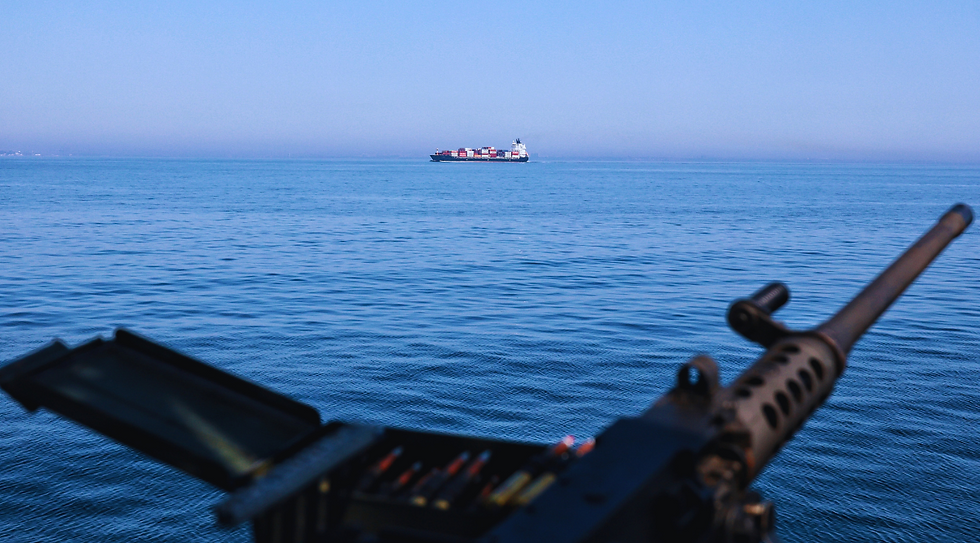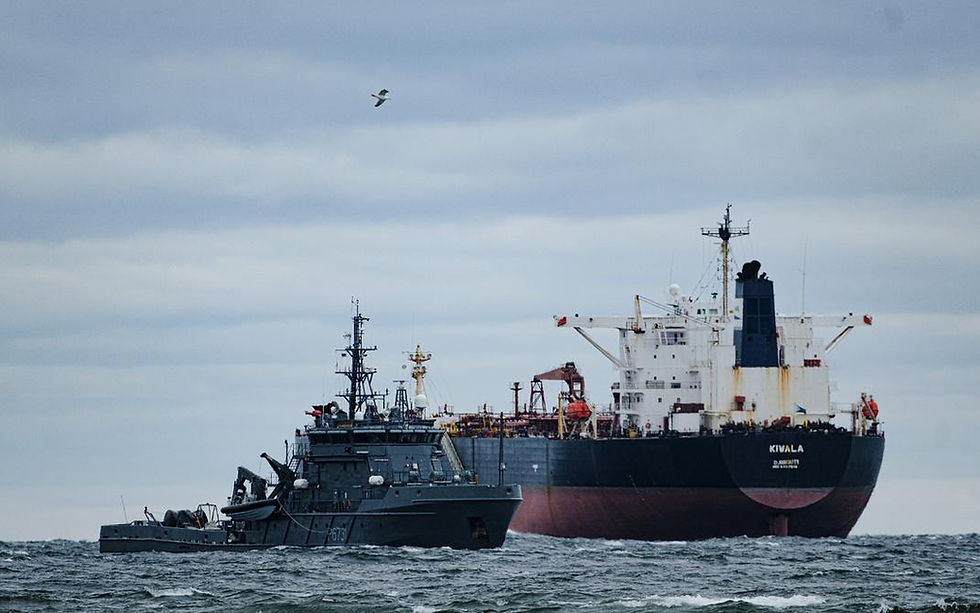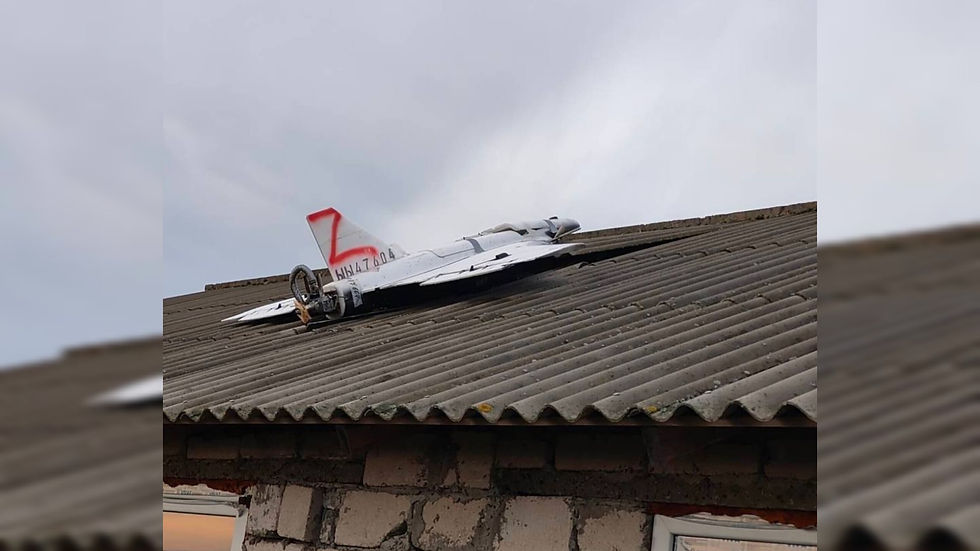Ukraine. Next steps: starting from rebuild, reforms, integration and other steps
- Res Publica

- Jul 11, 2022
- 8 min read

It has been more than 130 days since Russia’s war against Ukraine began. Ukraine has shown that it is able to defend itself and win the war, too, with the assistance from the EU and the international community. However, the war can be protracted. Ukraine and the EU need to prepare for such a scenario.
In the last few weeks, the EU made a historical decision to grant Ukraine the EU candidate status. Integration of Ukraine towards the EU will have very important geopolitical consequences both for Ukraine and the whole European continent.
It is crucial that EU has a clear understanding of and a strategy for what needs to be done next in order to keep assisting Ukraine on the highest level, how and for what purposes we need to mobilize our efforts. There are some ideas, which will help better understand what will be the most important next steps.
UKRAINE’S INTEGRATION: WHAT’S NEXT?
1. What is the next key EU decision on Ukraine’s further integration?
The decision to open negotiations with Ukraine. It is important that such negotiations start as early as 2023, ideally in the first half of 2023.
To achieve this, it is essential that the European Commission delivers a positive assessment of Ukraine at the end of this year in its Opinion on applicant countries/Enlargement report for Ukraine (as foreseen in the Council Conclusions). In this report, the Commission will take into account the progress made by Ukraine on the seven ‘understandables’ that were identified in the Opinion. Ukraine must by then demonstrate that it has met all the conditions that were indicated in the Opinion. After that the Council should approve the Enlargement report for Ukraine and decide on further steps, including on beginning of negotiations with Ukraine.
2. When can Ukraine’s EU membership negotiations be concluded and when can Ukraine become an EU member?
It is possible to achieve the conclusion of Ukraine’s membership negotiations in 2027-2028 and EU membership in 2029, at the time of the election of the new European Parliament and the formation of the new European Commission.
This assessment of possible dates is based on comparisons with the “big-bang enlargement” of the EU to Central Europe and the Baltic States. In that case real negotiations took 3 (Lithuanian example) or 4 years (Polish example). Negotiations with Lithuania started in 1999, with Poland in 1998; both countries ended the negotiations in 2002, together with other 8 countries from the region. Then it took another two years to prepare and ratify the Treaty. Finally, in 2004 all ten countries successfully became EU members.
3. What is needed to ensure that negotiations with Ukraine move as swiftly as they did in the 1990s during the “big bang enlargement” and not as slowly as they have been since 2003 with the Western Balkans?
For negotiations with Ukraine to proceed rapidly, the EU needs to fundamentally renew its enlargement philosophy:
(a) Ukraine’s accession to the EU is not only necessary for Ukraine, but also for the EU. The eastward expansion of democracy, stability and economic success is in the EU’s interest because it is the only way to achieve a democratic transformation in Russia;
(b) A return to effective enlargement should begin with 1) an analysis of the mistakes and failures of the EU’s enlargement policy of the last decades and 2) the implementation of the following reforms based on that analysis:
EU enlargement cannot be halted by the Kremlin’s blackmail and intimidation, as was the case with Ukraine after 2014;
EU’s future enlargement must accelerate institutional and decision-making reforms within the EU, so that they are not an obstacle to further enlargement;
EU member states cannot use their veto right to block EU enlargement to their immediate neighbors with whom they have historical problems;
The EU must regain its “hunger for enlargement”, as Ukraine’s membership will strengthen the EU, not weaken it;
Ukraine’s geopolitical weight will propel the whole EU enlargement process forward, which will also benefit Moldova and Georgia as well as the Western Balkans, whose integration process so far has been stalling.
4. Why should Ukraine focus on its integration into the Single Market first?
Ukraine could choose to prioritise integration into the EU’s Single Market first, as integration into the Single Market would guarantee immediate access to the maximum economic benefits of becoming an EU member. This stage of the integration process can be completed before the EU institutions undergo the necessary reforms.
5. What is needed so that the political will of the EU to expand into Ukraine would be firm and long-lasting?
A like-minded “Ukraine Coalition” needs to be formed among the EU Member States. It should first consist of those countries which already show strong support for Ukraine’s integration and which will hold the Presidency of the Council of the EU in the next decade: the Czech Republic (2022), Sweden (2023), Denmark (2025), Poland (2025), Lithuania (2027), Italy (2028), Latvia (2028).
This coalition should become the core of the Process similar to the so-called “Berlin Process” that was set up at the initiative of Germany to support the integration of the Western Balkans.
6. Will the war disrupt Ukraine’s integration?
The war has already had devastating impact on the Ukrainian economy. Yet, at the same time, it has radically increased EU’s will for decisive geopolitical action: Putin’s threats about EU enlargement no longer have any effect. Not only are they not stopping EU’s enlargement, on the contrary, they give it a geopolitical boost.
The EU’s multi-billion dollar plan for Ukraine’s restoration and reconstruction (the Marshall Plan for Ukraine) will be closely linked to Ukraine’s integration and accession negotiation process and will only accelerate the integration process.
7. How will Ukraine’s membership benefit the EU?
Ukraine is a rich country with a huge but untapped economic potential, a developed industrial sector and a highly skilled workforce. Ukraine’s membership would significantly strengthen the economic power of our Union.
Integration into the EU is the only way in which the success of a democratic state can be established in a post-Soviet, post-totalitarian space. Ukrainian success would send a strong signal to the citizens of Belarus and Russia that they should seek the same changes. Such a development would guarantee lasting peace on the European continent. Peace is the primary interest of the EU.
8. Can we expect that Ukraine will implement the necessary reforms?
At the time of the “big-bang enlargement” to Central Europe and the Baltic States until 2004, the EU enlargement process had enormous transformative power for the candidate countries; they were in a hurry to implement reforms and to keep up with each other’s progress.
Meanwhile, the enlargement process in the Western Balkans after 2003 lost its transformative power – candidate countries lost motivation for reforms and faith in the enlargement process itself. The EU enlargement became a symbol of EU’s geopolitical failure.
Ukraine has made significant progress in adopting the EU acquis since 2014 with the support of the SGUA (Support Group for Ukraine). If the whole enlargement process regains its initial ambition and transformative power, Ukraine is likely to be among the fastest candidate countries to implement the necessary reforms.
SURVIVAL OF UKRAINE: WHAT DOES UKRAINE NEED NOW?
In order for Ukraine and EU to successfully implement the long term and ambitious Ukraine integration agenda, Ukraine needs to, first, survive the war, then win the war, and, finally, to receive immediate and long term assistance for reconstruction. There are steps that need to be taken now, looking at middle and long-term perspective.
1. What type of EU assistance is crucial if the war will not end in 2022?
The EU needs to move from momentary decisions on weapon deliveries or EU financial support (which were needed at the beginning of the war) to creation of systemic, middle to long term instruments of assistance, which would operate during the whole period of war.
2. How to estimate the long term needs of weapon deliveries to Ukraine? What is the current status of EU assistance?
The immediate deliveries of weapons, including heavy weaponry, is essential for Ukraine’s continued resistance against Russia’s brutal aggression. Yet up to now, weapon deliveries have been based only on capabilities of individual Member States, to give weapons from their individual defense stock.
It was an effective system at the very beginning of the war. However, at this stage a permanent, stable and sufficient system of weapon deliveries needs to be established. This weapon delivery system needs to be based on a clear financial mechanism to support such deliveries.
According to expert evaluation, each day Ukraine spends or loses military equipment with a value of nearly 400 million euros. If this trend continues, by the end of 2022 the total cost of financing the needs for military equipment will reach more than 100 billion euros.
The US has already decided to provide Ukraine with more than 30 billion euros worth of military assistance, while the EU has promised only 2 billion euros for military equipment needs financed through the European Peace Facility. The EU needs to substantially increase the funding under the European Peace Facility instrument for purchasing military equipment produced by EU military industry that will then be sent to Ukraine.
3. How to finance the survival of Ukrainian state during the war period?
Besides weapon deliveries, Ukraine needs permanent and stable financial assistance to finance regular public expenditures: salaries to the teachers and soldiers, pensions, etc. With the economy totally destroyed by the war, Ukraine needs a clear long term system of international assistance.
The IMF and Ukrainian Government estimations show that Ukraine needs external financial assistance of 5-7 billion euros monthly.
The decision of the European Council to make available exceptional additional Macro-Financial Assistance of up to EUR 9 billion in 2022 is important, but it covers Ukraine’s needs for 1.5 month. The recent decision of the G7 to provide Ukraine with 29.5 billion dollars in budgetary aid is crucial for the rest of 2022. However, if the war continues, Ukraine will need additional 80-100 billion euros of budgetary aid in 2023. A long-term financial support system for such assistance has yet to be gathered.
The EU together with the international community must urgently develop a long-term financial support system that would fund Ukraine’s public needs during Russia’s war of aggression. Such a system is especially crucial if the war extends into 2023 and beyond.
4. How to finance Ukraine’s long-term reconstruction?
As demonstrated in the statements of the European Council and the European Commission (published respectively on 31 May 2022 and 18 May 2022), the EU is committed to provide both short-term financial relief and is preparing for a comprehensive, long-term reconstruction of Ukraine effort with international partners.
The European Council on 31 May 2022 and the Commission Communication on 18 May 2022 on Relief and Reconstruction made a clear commitment to provide both short-term financial relief and preparations for a comprehensive, long-term reconstruction of Ukraine effort with international partners.
As indicated in the Commission’s Communication of 18 May on Relief and Reconstruction, Ukraine’s reconstruction will require a multibillion amount of funds. Experts estimate that long term reconstruction efforts will cost from 500 billion up to 1 trillion euros.
The European Commission proposed to establish the ‘Rebuilding Ukraine’ facility. This financing instrument will include funds received from seized or sanctioned Russian assets, loans, grants, and other sources. In this context, understanding the limits of different financing instruments, the European Commission additionally proposed to develop an adequate EU borrowing capacity to raise the funds for loans on behalf of the EU or with Member States’ national guarantees. This proposal by the Commission has to be addressed urgently by the Council. The European Parliament must act fast in order to mobilize political support for such an instrument.
5. How to rebuild infrastructure in Irpen before winter comes?
Some reconstruction needs are extremely urgent: in some Ukrainian cities crucial infrastructure or apartment buildings were severely damaged or destroyed by the Russian military. This infrastructure needs to be rebuilt before the heating season begins in late fall.
Local communities in heavily damaged territories are looking for very quick assistance from the EU, Member States or sister cities. The dynamic community leadership of the heavily destroyed city of Irpen shows a good example of the grass-root approach. Now the EU needs to respond properly and effectively.
The peer-to-peer cooperation among cities and regions, as well as cooperation with health and education establishments in the EU and Ukraine is an important instrument in reconstruction efforts. Such cooperation has to be coordinated well by the EU to provide a unique, decentralized ownership over reconstruction needs to local communities. The EU is also a crucial agent in providing a diverse pool of expertise, resources and people-to-people contacts at the disposal of the reconstruction process. In particular, the EU should develop a patronage system for immediate humanitarian and reconstruction aid within the proposed framework of assistance.
Author: Andrius Kubilius, MEP, former Prime Minister, Lithuania
Cover illustration source: Dnipropetrovsk Investment Agency web page.





Comments